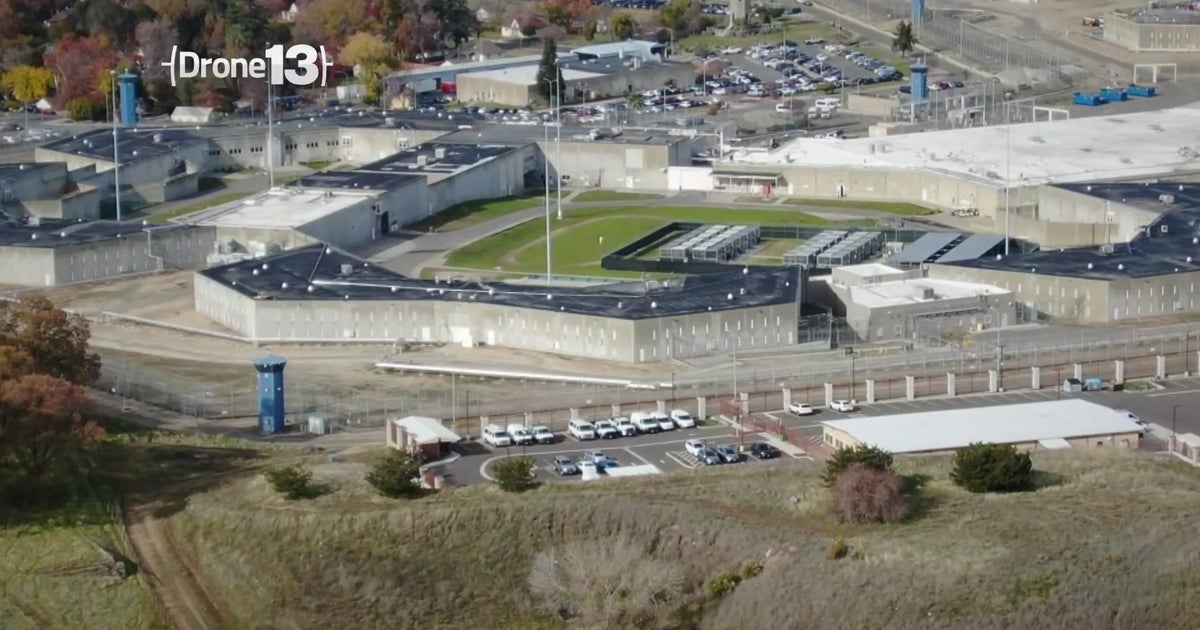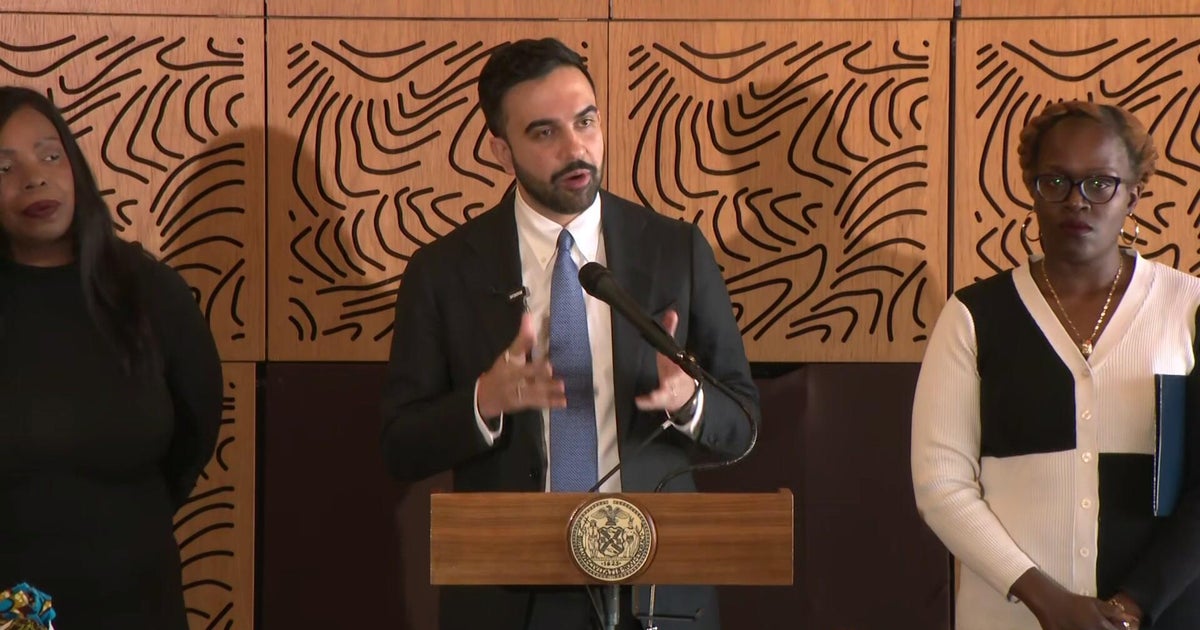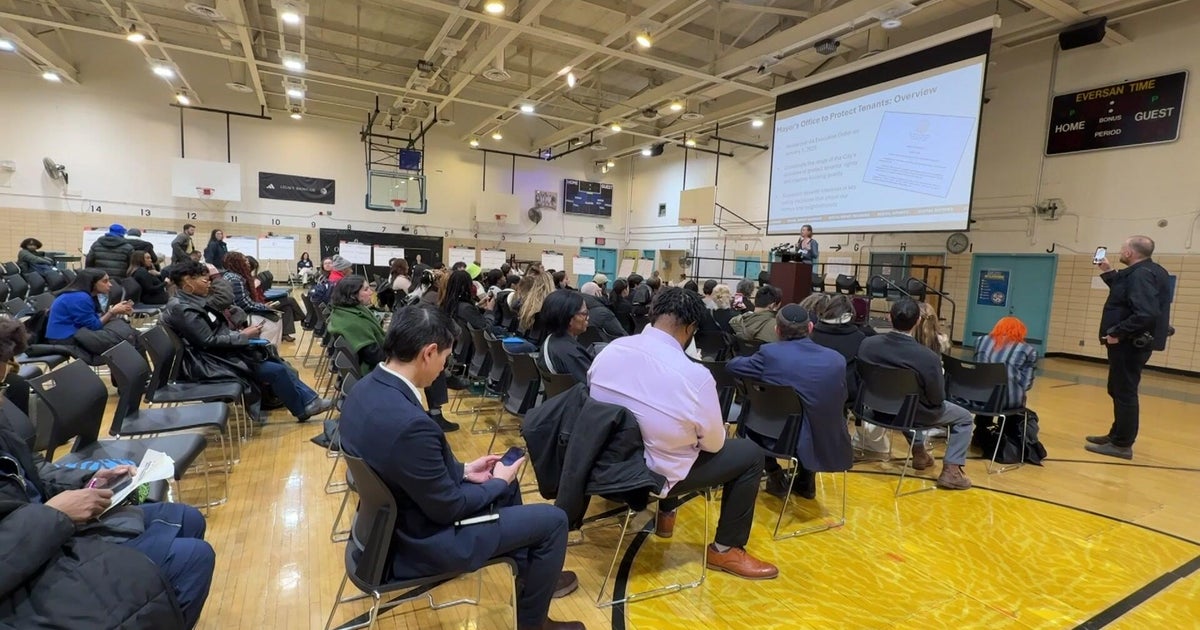Housing A Top Priority For California Lawmakers After Recess
SACRAMENTO, Calif. (AP) — Gov. Jerry Brown and Democratic legislative leaders have promised to tackle California's affordable housing crisis in their final weeks of work this year by pushing a package that includes regulatory reforms and money for low-income housing.
But some moderate Assembly Democrats are resisting pieces of the deal, particularly a new fee on real estate transaction documents to generate housing dollars.
There's widespread agreement that a variety of solutions are needed to address the housing shortage, which lawmakers say impacts millions throughout the state at nearly all income levels. Not enough housing is being built to accommodate the growing population and, as a result, California has higher housing prices and higher rates of homelessness than most parts of the United States.
More than a dozen bills are in play, and votes on them could start coming this week. Lawmakers' opportunity to pass legislation this year ends Sept. 15, when they leave for another recess.
"We need to take up this housing package as soon as we can," said Assemblyman David Chiu, a San Francisco Democrat who chairs the Assembly's housing committee. "The fact that the governor, our speaker and the Senate president have committed to a comprehensive housing package is indicative of how committed we are to getting this done this year."
Brown, Assembly Speaker Anthony Rendon and Senate President Pro Tempore Kevin de Leon said last month that the final plan will include a bond and an ongoing funding source for affordable housing.
Theresa Winkler, 54, has lived in subsidized housing in Los Angeles for about seven years and said she thinks the government needs to fund developments like the one she lives in. Winkler, who was homeless for much of her life and now works to raise awareness of mental illness and homelessness, said she wouldn't have been able to stabilize her life without access to housing.
"I understand that recovery centers and halfway housing costs money, but graveyards and hospital beds cost money too, which the taxpayers end up paying anyway," she said. "If a person is already destitute or at the bottom of the barrel, you can't just tell them to climb to the top. People need help."
The housing bond currently on the table would provide $3 billion to fund affordable housing. The money would have to be paid back with interest over time and would require voter approval in 2018.
A "heavier lift" will be establishing an ongoing funding source, said Tom Collishaw, who runs an affordable housing development organization in the Central Valley. He said he has spoken with lawmakers who are undecided about parts of the deal.
The main funding proposal on the table, SB2 by state Sen. Toni Atkins, would impose a $75 fee on real estate transaction documents such as deeds and notices, with a cap of $225 per transaction. It's expected to generate between $200 million and $300 million annually for affordable housing projects.
"Some of the moderate Democrats are wary of another funding bill that could be perceived as a tax," Collishaw said. "(But) putting a bond before the voters is probably going to be OK with them."
Atkins' bill would exempt documents related to property sales, but would apply to other transactions such as refinancing a mortgage.
Opponents argue it will increase costs for middle-class homeowners.
Some moderate Democrats are reluctant to vote for the new fee after already having to vote on two other big measures that will drive up prices for consumers: a gas tax hike and an extension of the cap-and-trade program that charges polluters, Collishaw said.
Atkins, a San Diego Democrat, said she has been speaking with lawmakers on the fence about her bill after the gas tax and cap-and-trade votes to try to assuage their concerns.
A spokeswoman for Merced Assemblyman Adam Gray, who leads the informal caucus of moderate Assembly Democrats, didn't respond to a request for comment.
The bill has already passed the Senate but requires a two-thirds majority in the Assembly, meaning if any Democrat votes against the bill, it will need Republican support to pass.
Leadership has promised the housing package will also include efforts to reduce burdensome regulations on housing construction. The main bill on the table to streamline regulations, by San Francisco Democrat Sen. Scott Wiener, would eliminate some local development restrictions in communities that fall behind on their housing goals.
The package could also include tax credits related to affordable housing and measures to pressure communities to comply with existing laws that require them to plan for housing production.
The bills on the table won't fix the housing shortage, advocates say, but they represent a critical step.
"We have a deep and growing housing crisis in many parts of California where people just can't afford to live. They can't afford housing," Wiener said. "It has to be a high priority."
(© Copyright 2017 The Associated Press. All Rights Reserved. This material may not be published, broadcast, rewritten or redistributed.)







